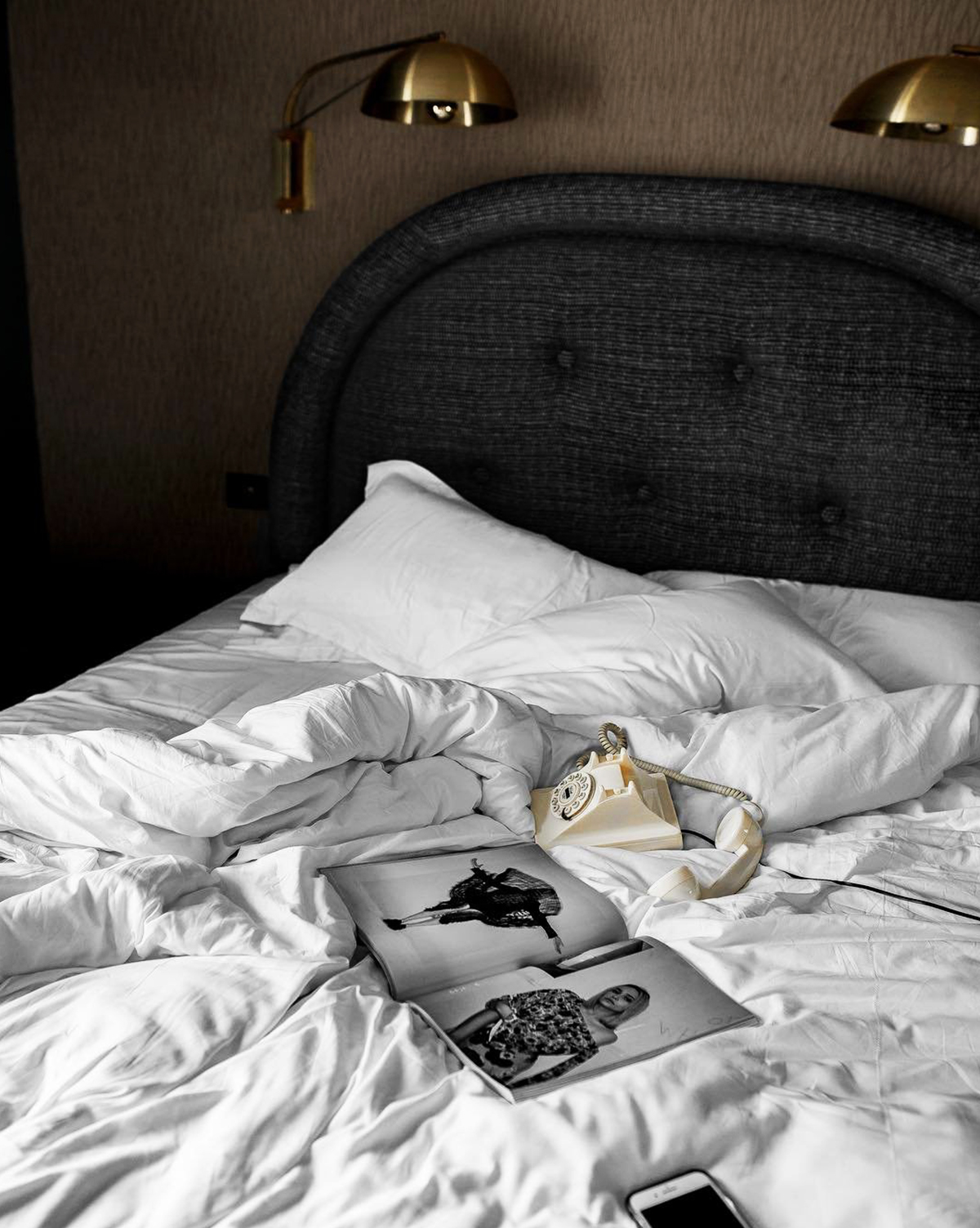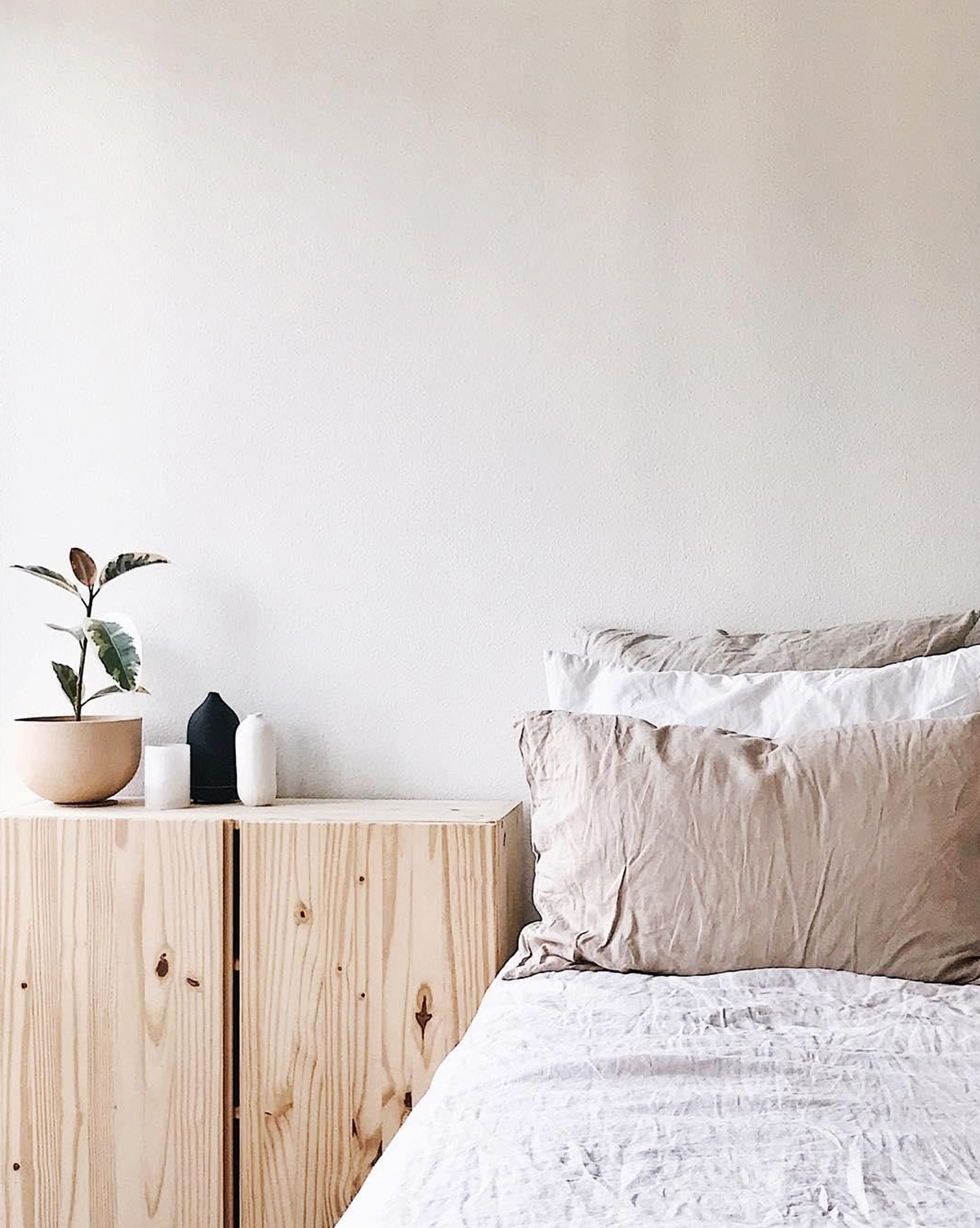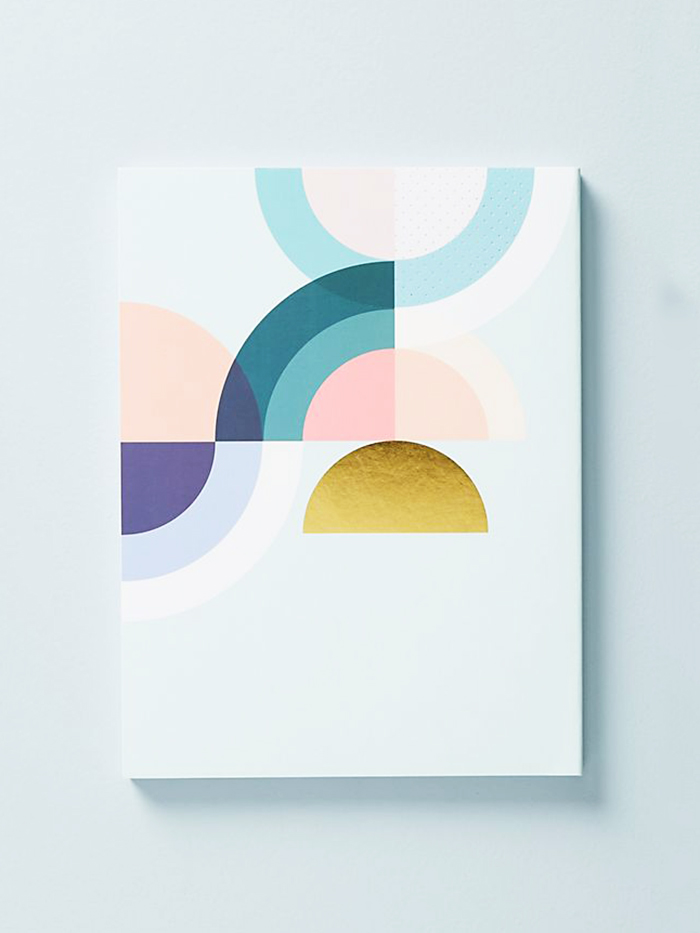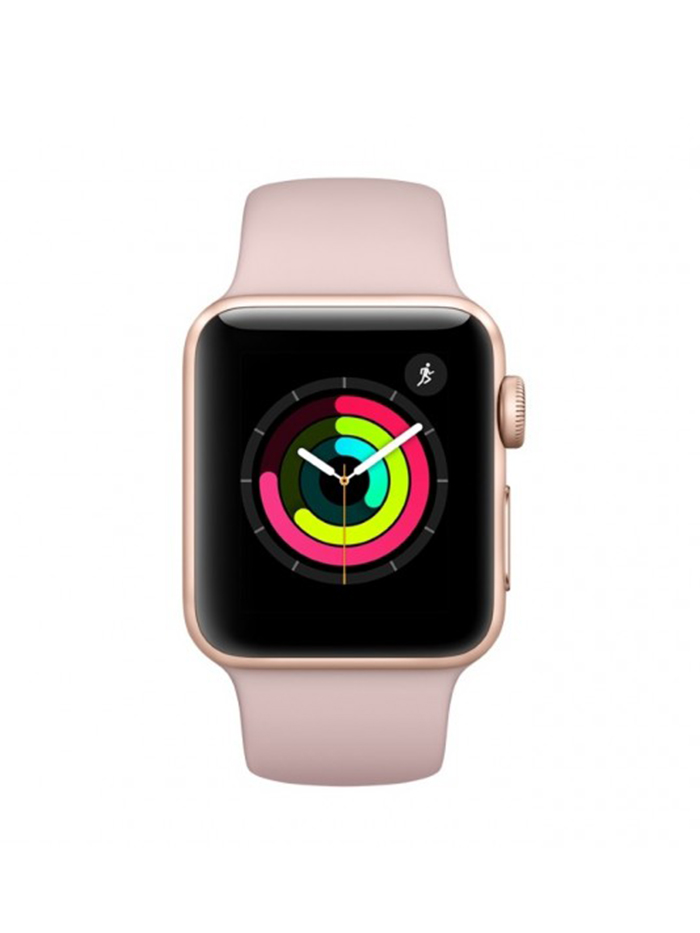It's Time to Assess Your Sleep Hygiene

This month, we're determined to help you catch more z's. We've partnered with Equinox to build a sleep challenge guaranteed to help you feel more well rested by October's end. Each week, we'll tackle one science-backed strategy to help you work toward getting more quality sleep. To kick things off, learn how logging your current sleep habits might be the key to turning them around.

When I enter the office of Ken Laing, the personal trainer who will help guide me through Equinox's brand-new sleep coaching program over the next 12 weeks, I am—predictably—exhausted. Three mugs of hastily chugged coffee can't undo the fitful night of slumber I endured just hours before, but on the bright side, the bags under my eyes emphasize just how qualified a candidate I am for a sleep hygiene makeover.
As I've worked to become intimately familiar with my own well-being over the past few years, I've discovered that consistent, quality sleep is the glue that holds me together. This isn't just personal conjecture, but science: Research tells us that sleep impacts everything from our mood and digestion to our hormonal balance. A lack of sleep doesn't just make us cranky or foggy: It can exacerbate inflammation, suppress immune function, and even shave down our life expectancy.
The cruciality of getting quality shut-eye isn't exactly news to me, but I'm exhibit A of it being easier said than done. I'm genetically predisposed to insomnia (thanks, Mom!), have trouble sleeping past 7 a.m. even on weekends, and, like many of my peers, tend to fall asleep with my phone in hand even when I know it's making matters worse. When I first learned about Equinox's sleep training program at the beginning of the summer, the highly personalized, science-based approach deeply appealed to me. But it was also very much a Hail Mary pass.
Over the next three months, Laing and I would work to subtly shift the sleep habits that were standing in my way. Some of them, like my tendency to check my inbox at 11:30 p.m., were fairly obvious, while others required a little digging. But the first step to all of this—the very first thing that my trainer asked of me during that first meeting—was logging my existing sleep habits over the course of one week.
At the time, it seemed almost like busywork. I knew what my issues were, so why didn't we skip ahead to the part where we address my inability to put down my phone and I learn to sleep happily ever after? You can probably guess how this goes: After a week of painstakingly writing down my sleep and wake times and rating my mood each morning, among other things, I began to discover some of the subtler elements at play—which we then were able to work through in our following sessions, until suddenly, I was sleeping through the night, no problem.
Keep reading to learn how to keep a sleep log—and why it could be the key to catching more z's every single night.
How to keep a sleep log
The purpose of the sleep log, says Laing, is to bring awareness to some of your most basic habits: sleep and wake times, for example, as well as your mood upon waking.
"We want to know how you feel when you first wake up," he says. "This gives us some insight into your sleep quality. Many people can push through and ignore fatigue so much so that they don't realize how tired they are. Right when you wake up, before caffeine, that first email, or whatever it is that gets you moving in the morning, we have some insight into your sleep quality. It's not a perfect tool, but for many people, it's something we can measure over time to track change."
It's pretty simple. Over the course of one week, you'll write down the following in a notebook each morning:
1. The time you went to bed, the time you actually fell asleep, and the time you woke up.
2. Whether you woke up at all during the night and, if so, what time and for approximately how long.
3. Your mood upon waking, rated on a scale of 1 to 10 (1 being groggy and absolutely miserable, and 10 being immensely well rested, happy, and ready to tackle the day).
As an example, my Sunday night sleep log might look like this:
SUNDAY
Got into bed: 10:30 p.m.
Fell asleep: 10:45 p.m.
Woke up at 2:30 a.m. Fell back asleep at 3 a.m.
Woke up: 6:30 a.m.
Mood: 7
The point of this first week is to treat it as you would any other while also taking the care to log this data. That way, you can note certain consistencies and get a better idea of what exactly might be impacting your sleep quality in a negative way—as well as how certain factors (waking up in the middle of the night or a late bedtime, for example) impact your mood the following day.
This all said, I've found that it can be difficult to accurately recall exactly when I drifted off, or the precise timing of when I woke up during the night. For this reason, it was useful to me during this logging period to wear some kind of fitness tracker that monitored my sleep quality during the night so I could refer to that data the following morning. The Fitbit Charge ($150) has fantastic built-in sleep-tracking capabilities. I also really like the AutoSleep app ($3), which is compatible with Apple Watch ($279).
Take notes

The sleep log serves as your concrete data, but it's helpful to note any other details, especially on nights when you have trouble falling or staying asleep. "Are you doing anything stimulating before sleep," asks Laing, "or is your bedroom cool, dark, and quiet?" These factors all serve as context to your log and will make correcting your habits all the easier.
Troubleshoot

After logging your habits for a week, you should have a better idea of any obstacles that are worth addressing in the name of better sleep. For me, the first and biggest step was establishing more consistent sleep and wake times—the science of which we'll dive into during week two of our sleep challenge. But in the meantime, check below to hack some of the most common issues that might be standing in your way.
If you have trouble unplugging before bed… Consider putting your phone in airplane mode.
If it's hard for you to fall asleep quickly… This one-minute breathing exercise just might do the trick.
If you're a snooze button addict… Learn how to quit.
If your "sleep sanctuary" leaves something to be desired… Start investing in your bedroom space.
If "winding down" is a foreign concept… Learn how to build an ultra-relaxing bedtime routine.
This article is provided for informational purposes only and is not intended to be used in the place of advice of your physician or other medical professionals. You should always consult with your doctor or healthcare provider first with any health-related questions.


